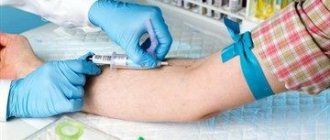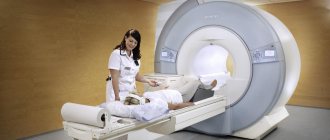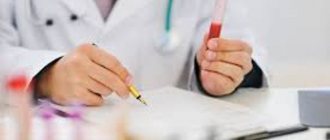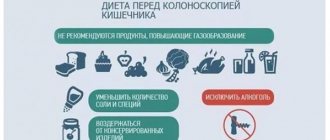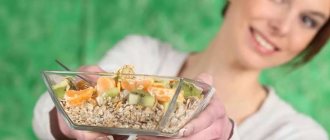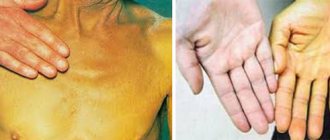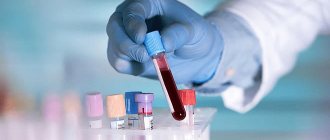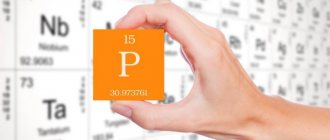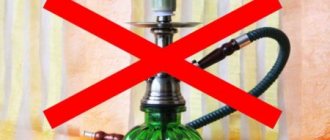How long should you fast before taking blood tests?
The length of time you need to fast depends on the type of test you are having. Your doctor will tell you how long you should fast from eating.
- Blood glucose level analysis . Determining fasting blood glucose levels usually requires an overnight fast of 8 to 10 hours.
- Blood cholesterol level analysis . Some types of cholesterol tests do not require testing on an empty stomach. Some, such as the LDL cholesterol test, may require up to 14 hours of fasting.
- Triglyceride level analysis . You likely won't need to fast to take a triglyceride test, but some situations may require you to fast for 12 hours.
- Serum iron level analysis . You may be asked to fast for 12 hours and avoid taking iron supplements for 24 hours before this test.
- Analysis of vitamin B12 . There is often no need to fast before taking a vitamin B12 test. In some situations, your doctor may recommend a fast of 6 to 8 hours.
- B vitamins . A blood test for all B vitamins is usually performed in the morning on an empty stomach.
- Biochemical blood test to check the condition of the kidneys . Before a kidney function test, you may be advised to fast for 8 to 12 hours.
- Gamma glutamyl transferase test . Your doctor may advise you to fast overnight and avoid drinking alcohol for 24 hours.
What should you not eat before donating blood?
Donor dietary restrictions
“Forbidden” products before the procedure:
- salty and fried dishes with spices, smoked products (exclude 48 hours in advance);
- Dairy products (sour cream, cheese, yoghurts and whole milk, cream, butter) are not recommended to be consumed for three days before the procedure, since animal proteins and fats make it difficult to separate blood components;
- eggs, nuts, bananas and dates, as well as dairy products, are contraindicated because they lead to a supersaturation of the plasma with neutral fats, which is called “chylosis”;
- ketchups, mayonnaise, various ready-made sauces, chips and crackers contain a large number of chemicals (preservatives, flavorings) that are harmful to the body;
- sweet carbonated drinks, low-quality juices containing dyes and preservatives toxic to the body;
- within 72 hours before donating blood, experts recommend refraining from drinking drinks containing alcohol and energy drinks;
- on the day of donation, it is important to quit smoking (active and passive);
- The issue of the need to discontinue medications is decided in advance at the blood transfusion center.
Symptoms that may require a fasting blood test
There are many diseases and conditions that your doctor may want to test you for with a fasting blood test. Three common examples, among many, are diabetes, high cholesterol, or low iron.
The following symptoms may indicate one of these conditions:
- extreme thirst
- slow wound healing
- blurred vision
- fatigue
- frequent urination
- pale skin
- brittle nails
- headache
- dizziness
Nutrition after the procedure
After donation, you need to sit for literally 10-15 minutes. After this, you can go to the buffet and drink sweet tea. If dizziness cannot be avoided, you should immediately contact medical personnel. Usually a person is placed on a couch and his legs are raised above his head. Until the dizziness disappears, you cannot leave, much less drive.
You should not smoke for 2 hours after donating blood. On this day, you should avoid physical activity, including carrying heavy bags.
For 2 days after donation, the donor requires adequate nutrition. You should drink at least 2 liters of water, including juices and weak tea. It is better to avoid drinking alcoholic beverages at this time.
A one-time blood draw takes about 450 ml. It takes 4 weeks to replenish such reserves in the body. For this reason, throughout the month, meals should be as satisfying and nutritious as possible. It is recommended to increase calorie content, but not through fast carbohydrates, but through healthy foods, vegetables, and meat.
It is better to eat fractionally, in small portions 7 times throughout the day.
After the procedure, it is recommended to include the following foods in your diet:
- lean meat;
- fish;
- beans;
- dairy products;
- seafood;
- buckwheat;
- parsley;
- lentils;
- grenades;
- nuts;
- peas;
- soy;
- dried fruits;
- apples;
- spinach.
That is, the diet should be based on protein products and those that contain a lot of iron.
You will still have to stop eating trans fats, fried and fatty foods. It is best to boil or steam all dishes. Sometimes you can simmer.
Recommendations regarding fasting before a blood test
The following tips can help make fasting for a blood test easier:
- Stay hydrated . Drinking plenty of water before the test will make it easier to find blood vessels.
- Schedule your test in the morning . If you do your blood test in the morning, you will likely only need to skip one meal.
- Eat before fasting . Eating immediately before the fasting period reduces the time it takes to stop eating. For example, if your test is at 9 am and you need to fast for 12 hours, you can eat dinner around 8:30 pm the previous evening.
- Avoid exercise while fasting . Exercise speeds up digestion and forces you to burn extra calories.
- Do not be distructed . Keeping yourself busy will help relieve hunger.
What foods are allowed and not allowed?
There are products that are undesirable to consume shortly before submitting biomaterial for analysis, since they can artificially increase or decrease blood counts and change its density. 1-2 days before donating blood, it is prohibited to consume:
- eggs;
- sausages;
- fast food;
- canned food;
- smoked meats;
- dried fruits;
- seafood;
- nuts, seeds;
- fatty dairy products;
- fatty meat: duck, pork, goose;
- vegetable and butter;
- mayonnaise, ketchup, salad sauces;
- marinades and pickled products;
- sweet fruits and berries: banana, grapes;
- fatty fish: mackerel, trout, sardine, herring;
- products containing chemicals: snacks, fast food, artificial seasonings, semi-finished products.
Advice! The day before the expected test, it is recommended to stop using chewing gum.
The drinking regime will also have to be reviewed: alcohol, coffee, kvass, strong tea, energy drinks, fruit juices, mineral water and sweet soda are prohibited.
Products allowed for consumption:
- vegetables;
- fresh vegetables;
- dried bread, drying;
- lean fish: hake, halibut, cod;
- day-old white bread, unsweetened pastries;
- porridge without oil and salt, cooked in water;
- lean meat: chicken or turkey fillet, rabbit;
- fermented milk products with a fat content of no more than 2.5%;
- unsweetened fruits and berries: apples, apricots, strawberries, blueberries, currants.
During the day, you can drink water without gas and additives, weak tea and fruit compote without sugar. You cannot completely refuse food the day before visiting the laboratory : prolonged refusal of food, as well as the consumption of prohibited foods, will negatively affect the results of the study.
Summarize
Some blood tests require a certain period of fasting so that your doctor can get an accurate reading.
If you eat during your fasting period, tell your doctor so they can decide whether you should reschedule your blood test. In some cases, you will still be able to take the test at your scheduled time.
Sources
- B vitamins. (2017). labtestsonline.org.uk/tests/b-vitamins
- Direct LDL cholesterol. (2016). labtestsonline.org.uk/tests/direct-ldl-cholesterol
- Glucose tests. (2016). labtestsonline.org.uk/tests/glucose-tests
- Hypoglycemia (low blood sugar). (n.d.). diabetes.org/diabetes/medication-management/blood-glucose-testing-and-control/hypoglycemia
- Iron tests. (2019). labtestsonline.org.uk/tests/iron-tests
- Gamma glutamyltransferase. (2020). mayocliniclabs.com/test-catalog/download-setup.php?format=pdf&unit_code=8677
- Renal panel. (2015). labtestsonline.org.uk/tests/renal-panel
- Triglycerides. (2015). labtestsonline.org.uk/tests/triglycerides
- Vitamin B12 and folate. (2016). labtestsonline.org.uk/tests/vitamin-b12-and-folate
Sugar
The diet before donating blood for sugar depends on the purpose of the examination. The doctor reports this. The procedure is carried out to control sugar levels at different stages of digestion. This makes it possible to identify the presence of a disease such as diabetes mellitus of the first and second types, and to monitor the effectiveness of therapy in patients.
In this case, it may be necessary to undergo examination both on an empty stomach and after eating. Your doctor should tell you about the diet. In some cases, it is necessary to take the test on an empty stomach. In this case, you need to have dinner at least eight hours before the procedure. It is not allowed to drink tea or juice during this period. You can drink pure, still water without additives.
If the control must be carried out after a meal, this should be done an hour or an hour and a half before donating blood (not earlier). The choice of preparation depends on the diagnostic technique. The doctor should tell you in detail about all the nuances.
Principles of preparation
Each type of analysis has its own recommendations on nutrition. But there are principles common to all blood tests. They are quite simple and do not require much effort, but failure to comply with them can significantly affect the result.
Main principles of preparation:
- You should not take medications 3 days before the procedure. Of course, if taking medications is not vital. There is a wide list of tablets that are prohibited from taking before the procedure. Before making a decision about taking/not taking pills before donating bio-material, you must consult with your doctor.
- A couple of days before collecting material for research, it is strictly forbidden to drink any alcoholic beverages, and 3 hours before smoking. Alcohol and tobacco have a specific effect on the structure of the blood.
- The optimal time for the procedure is the morning hours. At this time, the readings are more reliable.
Diagnosis of blood in stool
Another method for diagnosing various gastrointestinal diseases is to test for the presence of occult blood in the stool. It allows you to identify some pathologies and diseases in the digestive tract. In this case, a diet is also required before testing feces for occult blood.
The presented analysis is prescribed for frequent abdominal pain, heartburn, and nausea. For frequent constipation or other bowel disorders, this analysis is also performed. If a person loses weight for no reason or has a decreased appetite, the doctor prescribes the presented type of diagnosis.
If a preliminary examination reveals anemia, in some cases feces are also tested for occult blood content. The analysis allows you to determine the presence of peptic ulcer, polyposis, ulcerative colitis, and intestinal tuberculosis in the body. The diet before the test is prescribed 3 days in advance. If there are parasitic diseases in the body, this diagnostic method may be prescribed to assess the degree of damage to the intestinal mucosa.
What should a donor eat?
The diet before donating blood for transfusion contains a number of products that will be useful for both the donor and the patient. Lean meat, especially beef, should be included in the diet 3 days before the procedure (helps increase hemoglobin levels). You can also eat skinless chicken.
The diet can be supplemented with low-fat fish. The diet must contain a large amount of vegetables (except beets). You can eat wholemeal bread and bagels (dry). The diet includes various porridges with water. You can eat pasta periodically. You can't add oil to them.
All fruits are allowed except bananas, avocados, blueberries and citrus fruits. You can make homemade fresh juices and compotes from them. It is entirely acceptable to replace confectionery products with honey, natural jam (homemade), or jam.

